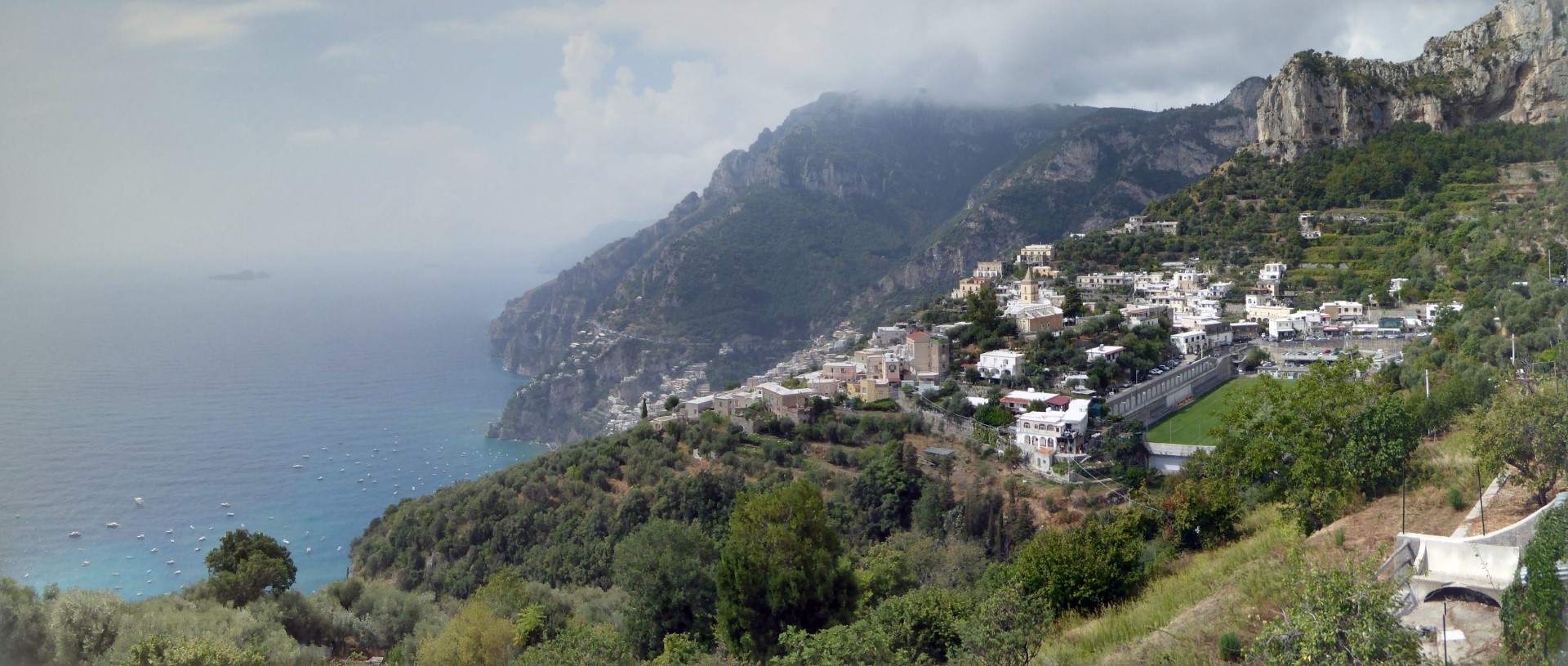
Amalfi Coast 2019
We have opted for a new approach to our overseas adventures. Our fondness for leisurely city strolls during past
trips has inspired us to embark on a more immersive adventure: walking holidays. This entails traversing from
one destination to another on foot, with the added convenience of having our luggage managed by someone else at
pre-arranged accommodations. After conducting thorough research, we have chosen On Foot Holidays , a company based in Salisbury,
UK, to facilitate our exploration of Italy, particularly our visit to the enchanting Amalfi Coast.
While
numerous companies offer similar services, what truly stood out during our interactions with On Foot was their
willingness to customize the walking itineraries to suit our specific preferences. Additionally, they furnished
us with a comprehensive package of guidance, maps, and recommendations, enabling us to focus on our walking
adventures and largely eliminate the logistical aspects of our holiday planning.
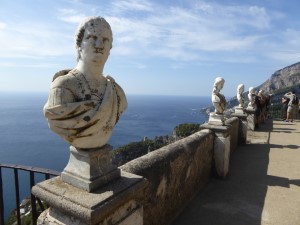
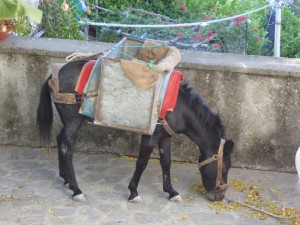
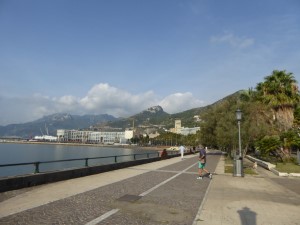
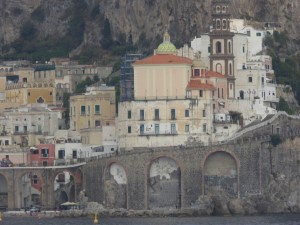
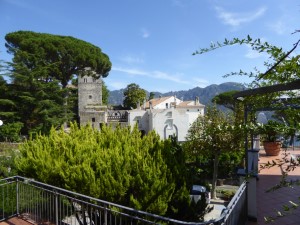
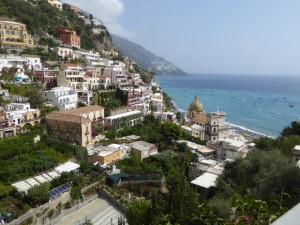
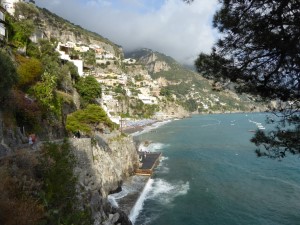
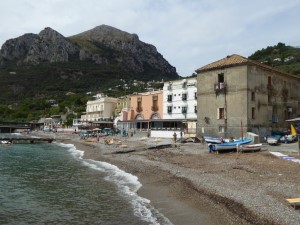
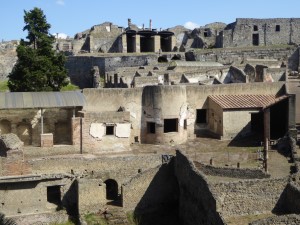
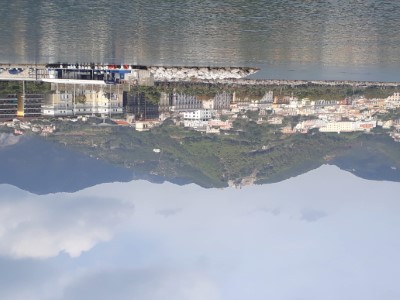
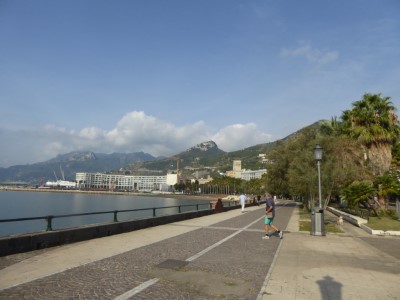
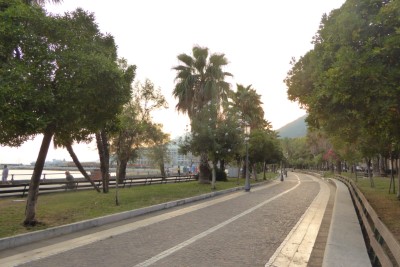
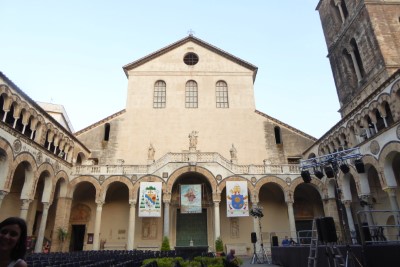
Day 01
It was one of those early morning flights from Gdansk to Copenhagen, where you end up spending more time at
the airport before departure than the actual flight duration. After a two-hour layover in Denmark, we
continued our journey to Leonardo da Vinci - Fiumicino Airport in Rome, Italy. From there, we hopped on the
airport train to Roma Termini, Rome's main railway station. Upon purchasing our train tickets to
Salerno, we quickly realized that the platform for our departing train is announced only minutes before
departure, necessitating a mad dash to the correct section to avoid missing the train. On the bright side,
the trains themselves were fantastic, offering exceptional comfort and incredible speed, reaching speeds of
up to 320 km/h.
A full twelve hours after departing from Gdynia, we finally arrived at B&B La Tartaruga in Salerno, a
picturesque coastal city nestled in the Campania region of southern Italy. This enchanting place is renowned
for its breathtaking landscapes, rich historical sites, and vibrant cultural scene. We decided to start our
Salerno exploration with a leisurely walk, immersing ourselves in the city's undeniable charm. This
peaceful stroll was the perfect prelude to a delightful dinner and a restful night's sleep.
Day 02
In the morning, we indulged in our first Italian breakfast at a charming café along Corso Vittorio Emanuele.
With ample time to spare, we savored another leisurely stroll through the enchanting streets of Salerno
before making our way to catch the ferry to Amalfi. As we sailed for an hour from Salerno to Amalfi, we
tried to absorb every bit of the breathtaking views along the Amalfi Coast, each sight being a novel
experience for us. Upon reaching Amalfi, a town and a popular tourist destination located on the Amalfi
Coast in the Campania region, known for its stunning natural beauty, rich history, and
picturesque coastal scenery, we had to navigate our way through crowds of fellow tourists to
reach our hotel, Villa Annalara. This beautiful establishment was situated above street level, but we were
fortunate that a combination of a lift and a few steps made the ascent manageable. The rest of the day was
spent exploring the charming town of Amalfi, discovering local shops, treating ourselves to delicious
gelato, enjoying meals at local restaurants, and sampling pastries from the bakeries.
Villa Annalara became our home for the next three nights, and we relished every moment of our stay. The
opportunity to unwind on our private terrace after a day of exploration, while gazing out at the city, the
mountains, and the sea, all while sipping on refreshing drinks, was truly priceless.
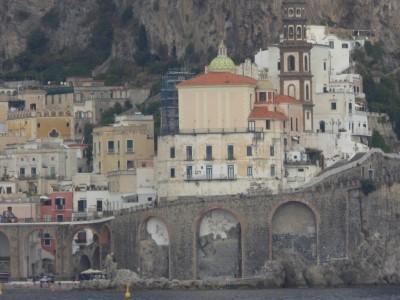
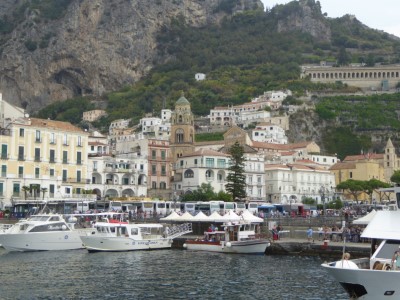
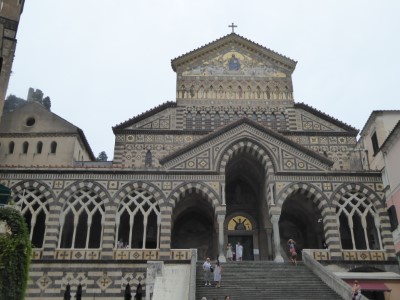
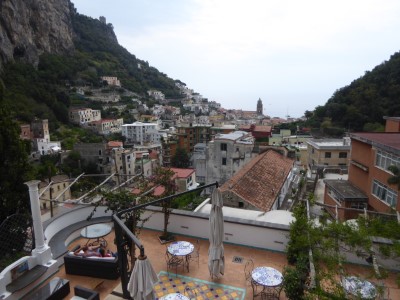
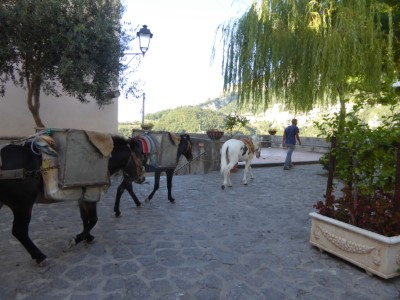
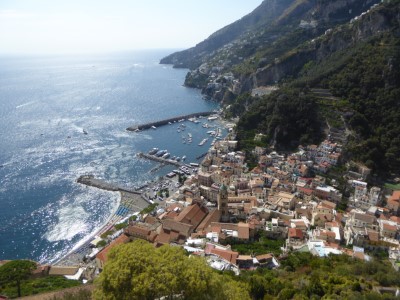
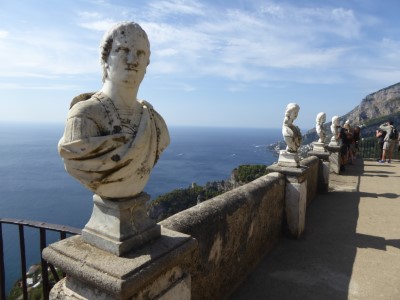
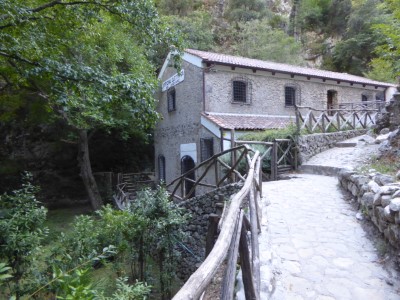
Day 03
Our initial adventure with On Foot Company began innocently enough. We diligently followed their guidance,
putting us on the right path leading to Ravello town. After ascending 1700 steps, punctuated by several rest
breaks for me, we arrived at Villa Cimbrone. This historic and iconic villa is perched high above the
Mediterranean Sea, gracing us with breathtaking panoramic views of the coastline and the Gulf of Salerno.
The villa is celebrated for its exquisite gardens, historic architecture, and its idyllic location. The
villa's most notable feature, the Terrazza dell'Infinito (Terrace of Infinity), is adorned with a
series of marble busts that glisten against the clear sky and the azure Mediterranean waters on sunny days.
Our next destination for the day was Castle Torre dello Zico, a historic watchtower. This tower is one of
several ancient watchtowers that punctuate the Amalfi Coast, constructed to safeguard against pirate attacks
during the Middle Ages and the Renaissance.
On our way back to Amalfi, we passed by an old paper mill, reminding us of the region's historical
reputation for its paper mills. The final highlight of the day, before a delightful dinner at Da Maria
restaurant, was a revitalizing swim in a swiftly flowing stream hidden away from the walking trail.
Day 04
We discovered the obvious: our accommodations were typically at sea level, while our hikes took us high
above sea level. Consequently, our days began with a climb of around 1500 steps and often ended with a long
descent or a return trip down those same steps. On this particular day, we commenced our second walk with a
challenging ascent to the quaint village of Pontone, renowned for its picturesque setting, breathtaking
views, and historical architecture. The village served as an excellent starting point for various hiking
trails amidst the surrounding hills and along the coastline. Notably, it was the gateway to the famous 'Path
of the Gods' trail, offering awe-inspiring vistas.
From Pontone, we followed an ancient donkey path that meandered high above Amalfi and led us to the charming
village of Pogerola. One of Pogerola's standout attractions was the Church of Santa Maria Maddalena, a
historical gem with a splendid interior. Additionally, the village played host to the annual 'Sagra del
Pesce' festival, where we savored delectable seafood dishes and immersed ourselves in traditional Italian
festivities. After a quick lunch at a local eatery, we embarked on our descent back to Amalfi.
That evening, we found ourselves at Trattoria dei Cartari, a bustling pizzeria on Amalfi's main street. Our
waiter became visibly upset when we ordered just one pizza for the two of us. In frustration, he threw the
cutlery onto the table and refused to serve us. It was quite a comical situation. Thankfully, a replacement
waiter was assigned to our table, and we were able to enjoy a pleasant end to the evening.
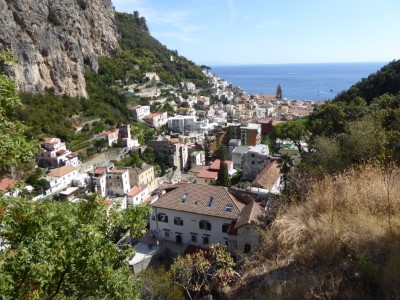
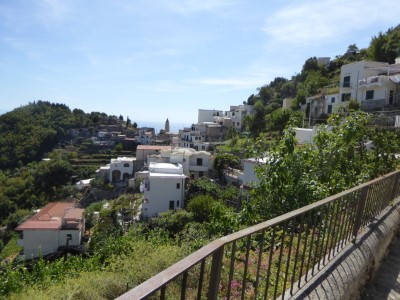
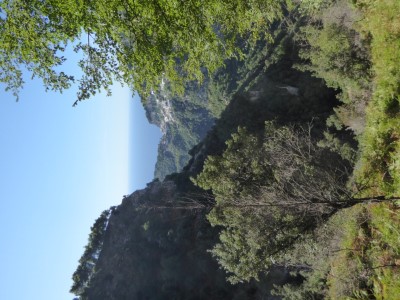
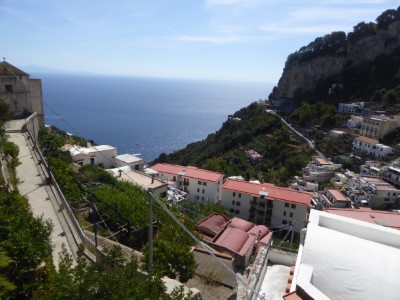
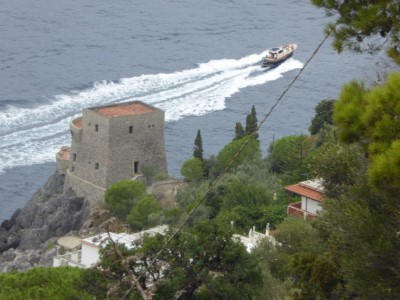
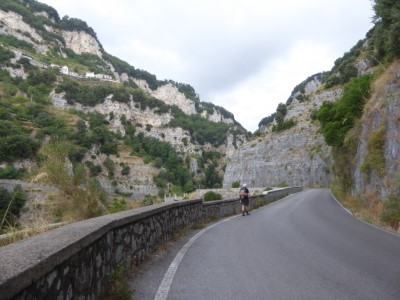
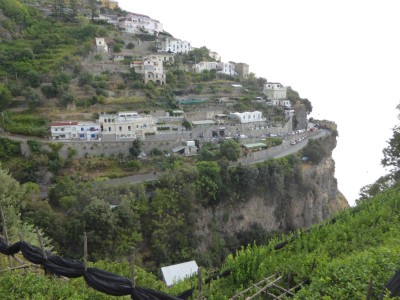
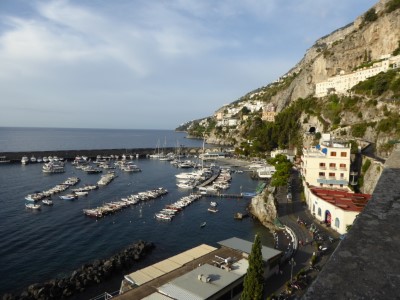
Day 05
The time had come to embark on an exploration of the Amalfi Coast beyond. Our plan for the day was to journey to Praiano, a picturesque coastal village nestled between the more renowned towns of Positano and Amalfi. Praiano offers an undisturbed and truly Italian experience, often overshadowed by the throngs of tourists who flock to its neighboring destinations. Notably, we were spared the arduous climb of thousands of steps at the outset of our walk. On the contrary, we spent the majority of the day traversing ancient medieval paths, accompanied by breathtaking vistas as always. We encountered some wonderfully secluded spots along the way, culminating in the awe-inspiring Abu Tabela high path from the mountain village of San Lazzaro. It was, as advertised, a demanding day. When we finally arrived at the Tramonto D'Oro hotel in Praiano, it was nearly 7 p.m.
Day 06
It took us approximately five hours to complete the 16-kilometer journey from Praiano to Positano. During
the first half of our trek, we traversed the renowned Path of the Gods, also known as Sentiero degli Dei, a
captivating hiking trail that spans about 7.8 kilometers. This moderately challenging trail offers
breathtaking views of the Mediterranean Sea, rugged cliffs, and charming coastal villages, showcasing the
stunning beauty of the region. Named after Roman mythology, the path meanders through lush landscapes,
passing terraced vineyards and providing awe-inspiring vistas of the coastline and the island of Capri.
Upon our arrival in Positano in the early afternoon, we had ample time to explore the town. Its intricate
streets are adorned with charming boutiques, artisan shops, and family-owned establishments. The local
craftsmanship shines through in the form of hand-painted ceramics, limoncello, and custom-made clothing. The
enticing scent of fresh seafood and Italian delicacies fills the air, tempting passersby to savor the
regional cuisine. Positano's gastronomy is a delight for the senses, with dishes crafted from locally
sourced ingredients such as fresh fish, citrus fruits, and extra-virgin olive oil.
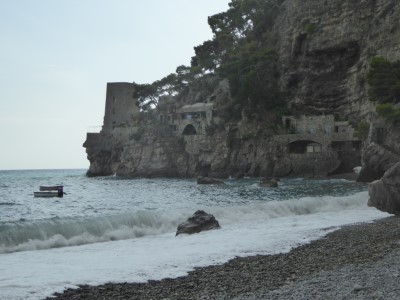
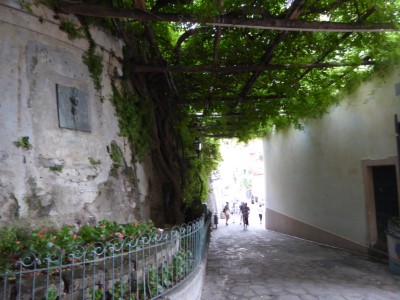
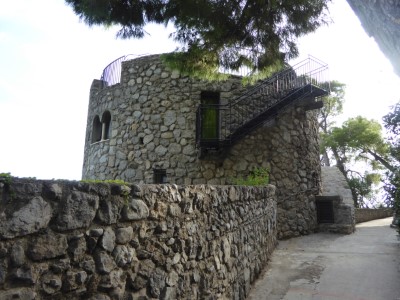
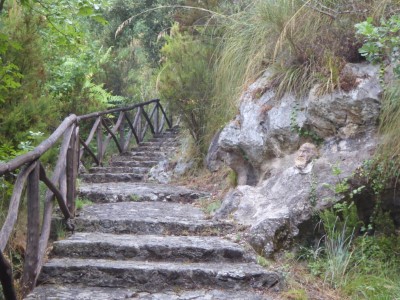
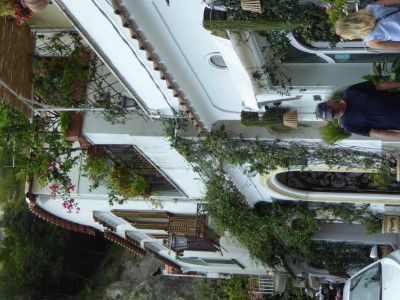
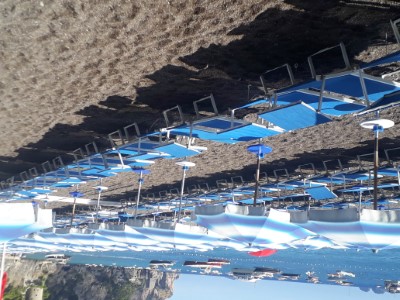
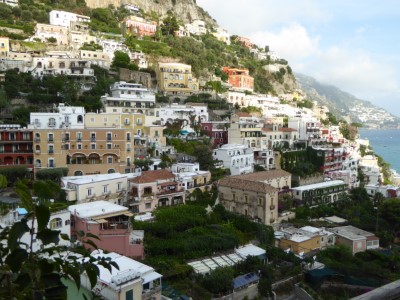
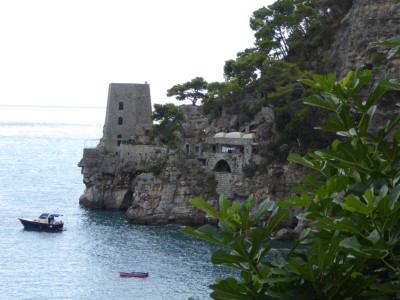
Day 07
It's been a few days since we arrived on the Amalfi Coast, and surprisingly, we haven't had the chance to take a dip in the Mediterranean Sea. That's about to change, though. We had heard that this charming town is surrounded by the stunning azure waters of the Mediterranean, featuring pristine beaches with soft, golden sand. The Spiaggia Grande, the primary beach, is a bustling hub where sunseekers lounge beneath vibrant umbrellas and beach enthusiasts savor delectable Italian cuisine at seaside restaurants. For those in search of a more tranquil escape, Fornillo Beach and Arienzo Beach offer quieter alternatives. The unfortunate reality was quite different from what we expected. The water wasn't crystal clear, we had to navigate between anchored boats, and to our dismay, the sea was littered with floating garbage bags. Instead of a relaxing beach day, we spent most of the day exploring the outskirts of the town. Nevertheless, it was still a very enjoyable day.
Day 08
It was an eventful day, covering a distance of over 30 kilometers during nine hours of walking. The day
began with a challenging ascent up the steps leading to Santa Maria di Castello, a hidden treasure
that seamlessly blends awe-inspiring natural beauty with profound spiritual significance. This historic
church, with a history spanning centuries, stands as a testament to the region's rich cultural heritage
and
offers a profound sense of tranquility in one of the world's most breathtaking coastal settings. Our
next
destination was Monte Vico Alvano, renowned for its prominent steel cross. Reaching it required a detour,
but the effort was undoubtedly rewarded with magnificent panoramic views from the mountain's summit.
Normally, we carry our own provisions when we embark on a hike, but this particular journey was
exceptionally long and strenuous. At one point, we came across a charming little place called La Perla Bar
in the midst of nowhere, where we indulged in a delightful Italian lunch. After our meal, we pressed on with
our expedition. Much of the route led us through private fields, lacking clear landmarks, which called for
Fiona's exceptional navigation and orienteering skills. In the end, we arrived at the Grand Hotel
Hermitage,
exhausted but content. Surprisingly, our room was upgraded at no extra cost, perhaps due to some unforeseen
reason.
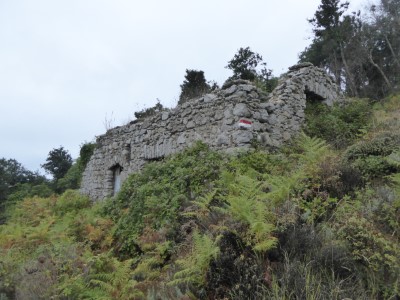
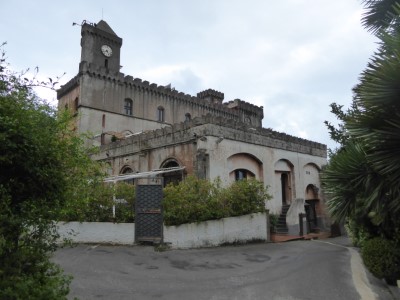
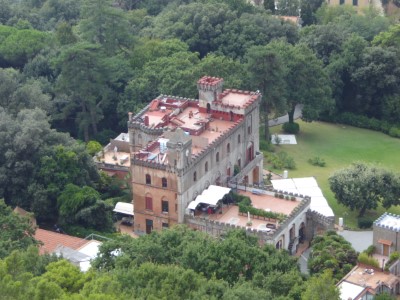
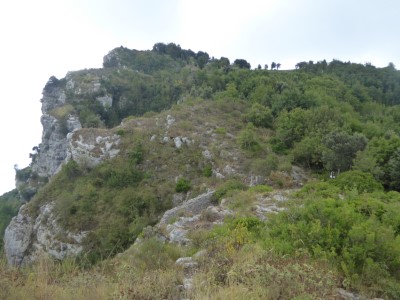
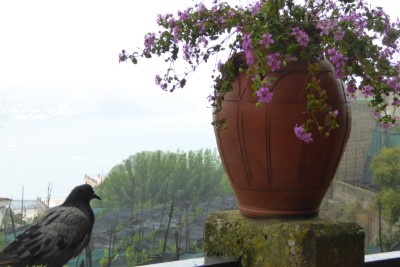
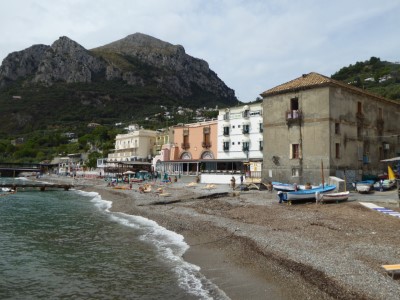
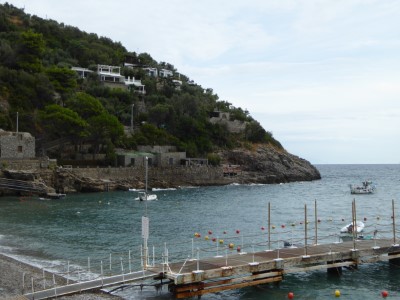
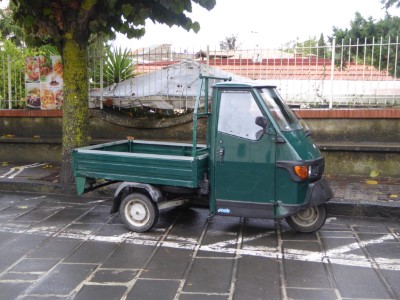
Day 09
Rather than heading directly from Sant'Agata to Sorrento, we made the decision to spend a night in the
quaint fishing village of Nerano Marina del Cantone. The combination of Nerano's charming village and
the
stunning coastal beauty of Marina del Cantone makes this destination an ideal choice for those seeking a
peaceful and picturesque escape on the Amalfi Coast. Although a relatively short walk, we somehow managed to
miss a crucial turn at the top of Nerano and ended up following the main road all the way down to Hotel la
Certosa. These mishaps can happen to the best of us.
What pleasantly surprised us was the pristine condition of the local beach, far cleaner than the one in
Positano. This provided us with the perfect opportunity to sunbathe, swim, and recharge our energy for the
upcoming stages of our journey.
Day 10
Our walking adventure was coming to an end, with only Sorrento left to explore. Having already covered the
distance from Massa Lubrense to Marina del Cantone, which didn't offer the most exciting scenery, we
made a
deliberate choice to take a local bus back to Massa Lubrense and commence our final walking day from there.
Opting for the bus allowed us to traverse the Sorrento Peninsula, which offers a plethora of stunning
sights. The peninsula's tip provides breathtaking views of the island of Capri and panoramic vistas of
the
bays of Naples and Salerno, accessible through a well-maintained network of paths.
Upon our arrival at the Astoria Sorrento hotel around 3 p.m., we found ourselves with ample time to explore
this enchanting city.
Sorrento's most striking feature is its awe-inspiring coastline. The town is perched on dramatic cliffs
that
plunge into the crystal-clear waters of the Tyrrhenian Sea. The views from these cliffs are nothing short of
mesmerizing, offering an uninterrupted panorama of the sea and the neighboring islands of Capri and Ischia.
The sheer beauty of Sorrento's coastal landscape has served as a wellspring of inspiration for
countless
artists, poets, and writers throughout history.
Additionally, Sorrento has gained recognition for its abundant lemon groves, which have become synonymous
with the town. The fragrant lemon trees produce the renowned "Sorrento lemons", used in the
creation of limoncello, a sweet and tangy liqueur that is a regional specialty.
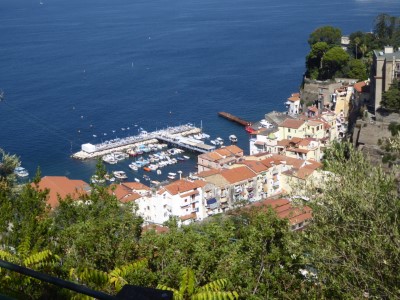
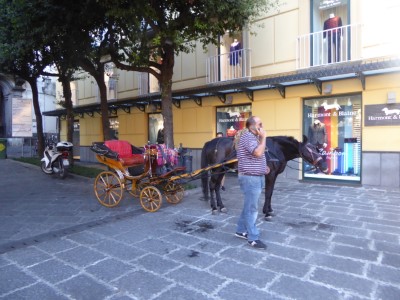
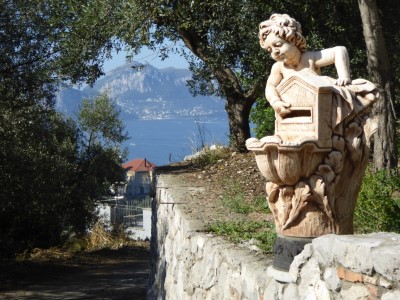
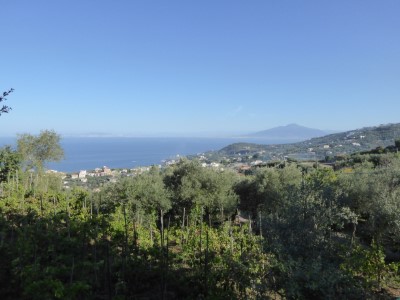
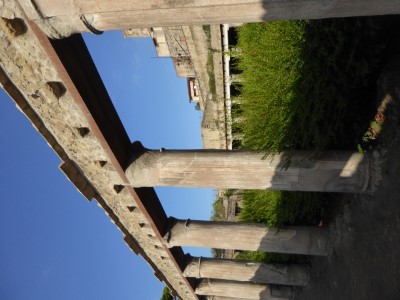
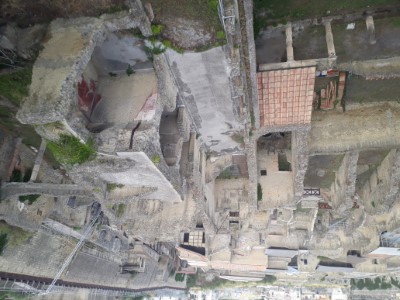
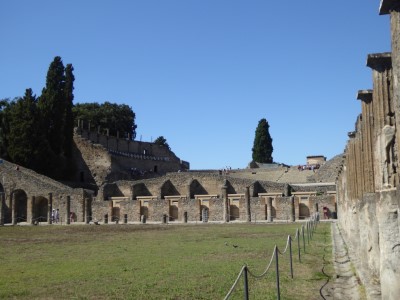
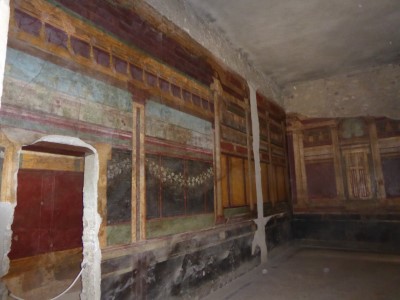
Day 11
Sorrento serves as a gateway to a myriad of attractions, including visits to Herculaneum, Pompeii, Mount
Vesuvius, and Capri. On this particular day, we had only enough time to explore Herculaneum and Pompeii,
leaving the ascent of Mount Vesuvius for a future visit.
Our day began with an early morning train ride from Sorrento to Ercolano, as we set our sights on the
remarkable site of Herculaneum. Similar to Pompeii, Herculaneum flourished as a prosperous and vibrant Roman
settlement during the 1st century AD. Nestled along the coastline, it was a favored destination for
well-to-do Romans. However, the eruption of Mount Vesuvius unleashed a torrent of volcanic ash, pumice, and
scorching gases, swiftly entombing the town and its residents. Unlike Pompeii, which was predominantly
buried under layers of ash and lapilli, Herculaneum lay beneath a deep blanket of volcanic mud, a key factor
in preserving many of its structures and their contents. While one could easily spend hours wandering
through the uncovered streets of this ancient city, our schedule prompted us to move on and catch the train
to Pompeii.
The most pivotal event in Pompeii's history undoubtedly remains the eruption of Mount Vesuvius in 79
AD. The
volcanic cataclysm blanketed the city beneath layers of ash and pumice, effectively suspending it in time
for nearly two millennia. This calamity claimed the lives of approximately 2,000 people, yet paradoxically,
the very eruption responsible for such destruction has gifted us with a priceless and unique glimpse into
the past.
A visit to Herculaneum acquaints you with a relatively compact settlement, while a visit to Pompeii immerses
you in a vast archaeological site, replete with numerous captivating facets of an ancient city.